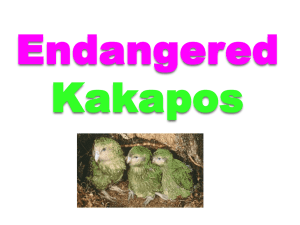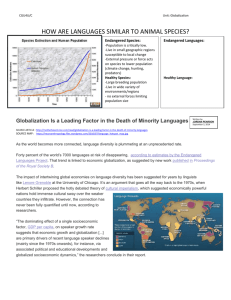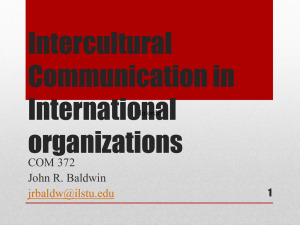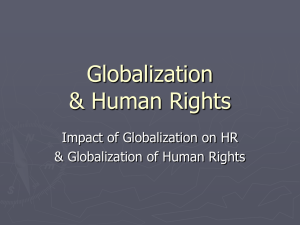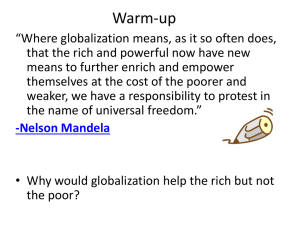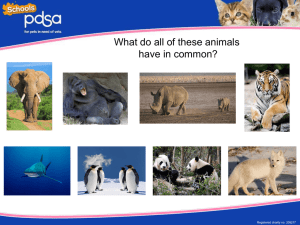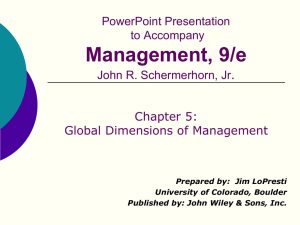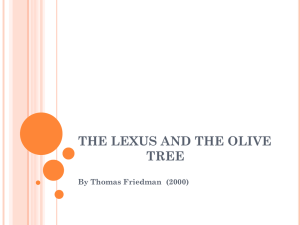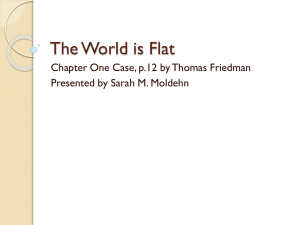Promoting Language
advertisement
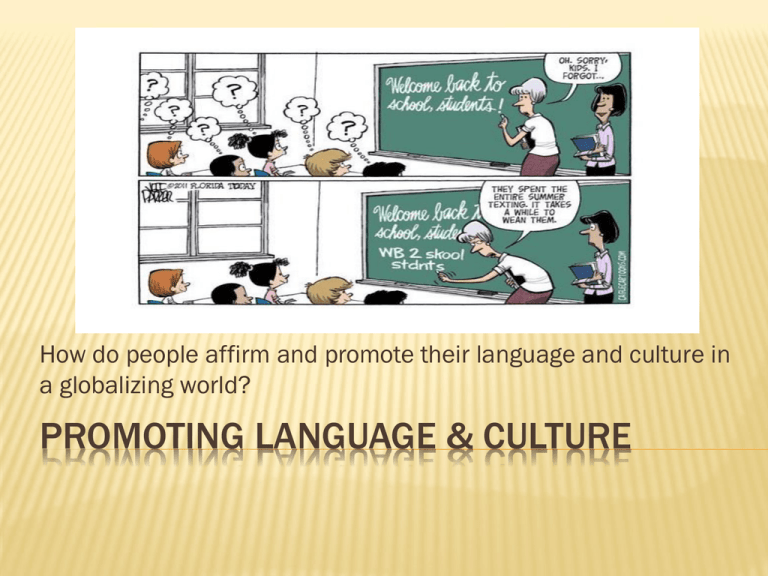
How do people affirm and promote their language and culture in a globalizing world? PROMOTING LANGUAGE & CULTURE AFFIRMING LANGUAGE People express their traditions, values, world views, and cultures through language “Even when they are unwritten, languages are the most powerful tools we have to conserve our knowledge, transmitting it...to the next generation. Any human language binds together a human community, by giving it a network of communication” LANGUAGE GROUPS IN CANADA DIFFERING VIEWS Some believe that globalization will bring greater understanding and interdependence among the people of the world Some believe that globalization threatens cultural diversity, and the proof is through so many endangered languages ENDANGERED LANGUAGES On average, 1 language disappears every 2 weeks An estimated 6000-7000 languages are spoken on Earth 96% are spoken by 4% of the world More than half are endangered How many languages can you name? DOMINANCE OF ENGLISH The major language of business, scientific research, and popular culture Main language of Internet and World Wide Web 90% of content on Internet is only in 21 languages SOURCE ANALYSIS THE ‘MAGIC CARPET’ REAFFIRMING CULTURE Collectives affirm their identity when they speak their language or express their culture, nation, or gender Some cultures reclaim what has been lost Example – 2006 – the Haisla reclaimed a totem pole from the National Museum of Ethnography in Stockholm, Sweden that was taken in 1927 TARTAR PEOPLE Live in the Crimean region of Ukraine and their language is ‘seriously endangered’ Weakened by Russian rule, and Soviet dictatorships The Krymsky Education Society of Edmonton is helping revitalize the Tartar culture by producing bilingual Ukrainian and Tartar textbooks for the children of Crimea EDMONTON & CRIMEA CULTURAL REVITALIZATION Is one way for a nation to keep their cultural identity from being absorbed by globalization Many artefacts in museums were taken illegally from cultures, specifically Aboriginal Peoples Museums are now returning these treasures to their rightful owners THREE VIEWS Pg. 97 Viewpoints of Deven, Gord, and Katerina Use these viewpoints to complete the handout LADAKH – RESPONDING TO GLOBALIZATION Pg. 98-99 Read the case study Complete the questions at the end Be prepared to share your views with the class

